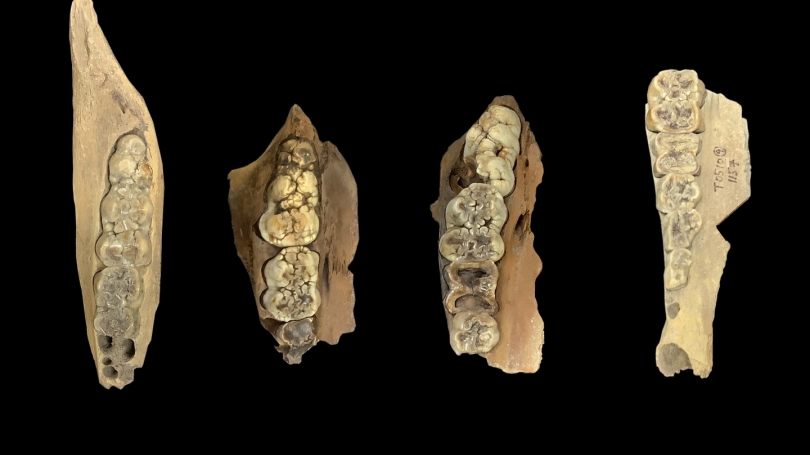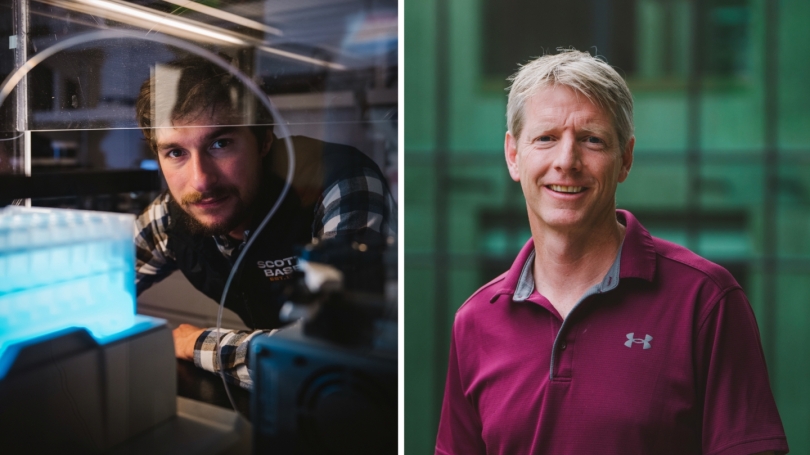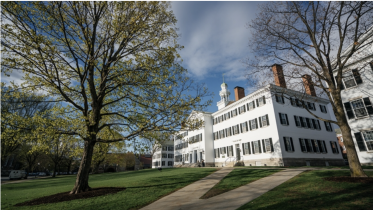
How Wild Boars Became Pigs: Clues from Ancient Teeth
Yiyi Tang, a PhD student in the ecology, evolution, environment, and society (EEES) program, is a co-author of a new study revealing that pigs were first domesticated in South China around 8,000 years ago. The research shows that early pigs scavenged human food and waste, offering the earliest direct evidence of a close human-animal relationship that sparked the domestication process. Read more.

How Wild Boars Became Pigs: Clues from Ancient Teeth
Yiyi Tang, a PhD student in the ecology, evolution, environment, and society (EEES) program, is a co-author of a new study revealing that pigs were first domesticated in South China around 8,000 years ago. The research shows that early pigs scavenged human food and waste, offering the earliest direct evidence of a close human-animal relationship that sparked the domestication process. Read more.

Study Reveals Soil Carbon as Early Climate Indicator
Neukom Fellow Sophie von Fromm led a new study exploring how soil carbon in northern hardwood forests responds to environmental change—revealing that while deep soil carbon remains stable, the upper litter layer is losing carbon more rapidly. Read more.

Full Circle: ASURE Alum Returns to Pursue MD-PhD
Elisa Bu Sha, a two-time Academic Summer Undergraduate Research Experience (ASURE) participant, is back at Dartmouth, this time as an MD-PhD student. Drawn by her summer research experience in glioblastoma and the community she found through ASURE, Bu Sha credits the program with shaping her path as a physician-scientist. Read more.

Study Challenges Climate Link to Jet Stream Changes
Jacob Chalif ’21, a Guarini student in Erich Osterberg’s Ice, Climate, and Environment Lab, is lead author on a new study showing that the polar jet stream's recent waviness isn’t unprecedented. Using machine learning and 125 years of data, the team found similar patterns well before climate change became a major factor. Trevor Partridge, Guarini ’21, is also a co-author of the study. Read more.

Bringing Latiné Perspectives to Biological Anthropology
Margarita (Maggie) Hernandez is a postdoc in the anthropology department researching how immigration history, political stress, and social support are biologically embodied in Latiné communities. Her community-based research explores how both positive and negative social experiences influence biological aging and contribute to health disparities. Read more.
How Wild Boars Became Pigs: Clues from Ancient Teeth
Yiyi Tang, a PhD student in the ecology, evolution, environment, and society (EEES) program, is a co-author of a new study revealing that pigs were first domesticated in South China around 8,000 years ago. The research shows that early pigs scavenged human food and waste, offering the earliest direct evidence of a close human-animal relationship that sparked the domestication process. Read more.
